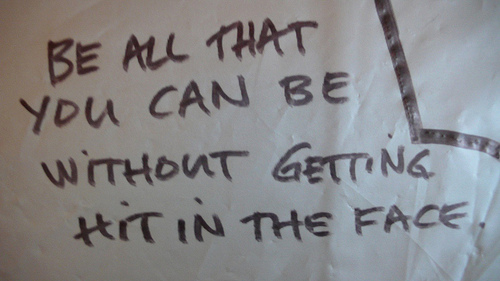The last damn thing you’ll ever need to read about New Year’s Resolutions:
.
What does the research say about resolutions?
Richard Wiseman, author of the excellent 59 Seconds: Change Your Life in Under a Minute, compiled research on resolutions. What were the main takeaways?
- Just pick one resolution. More than that is too hard.
- Break the goal into steps. Have a plan.
- Reward yourself for progress.
- Realize you may screw up. Keep at it.
How do you easily start good habits?
It’s called “Minimum Viable Effort”:
The first step is crucial — keep it tiny. Do not be ambitious yet. That leads to failure. Consistency is what you’re shooting for here so make the hurdle as low as possible.
What’s the easiest way to make good habits stick? Surround yourself with supportive friends:
Via Charles Duhigg’s excellent book The Power of Habit: Why We Do What We Do in Life and Business:
In a 1994 Harvard study that examined people who had radically changed their lives, for instance, researchers found that some people had remade their habits after a personal tragedy, such as a divorce or a life-threatening illness… Just as frequently, however, there was no tragedy that preceded people’s transformations. Rather, they changed because they were embedded in social groups that made change easier… When people join groups where change seems possible, the potential for that change to occur becomes more real.
Keep in mind it takes an average of 66 days to establish a new good habit.
From Oliver Burkeman’s Help! How to be slightly happier and get a bit more done:
…a new study by the University of College London Psychologist Phillipa Lally and her colleagues helps confirm. On average, her subjects, who were trying to learn new habits such as eating fruit daily or going jogging, took a depressing 66 days before reporting that the behaviour had become unchangingly automatic.
How do you break bad habits?
- The secret to breaking bad habits is to replace them with another habit.
- You can resist bad habits by avoiding the triggers that make you want to do them. Context is key.
- Here’s a quick explanation of how triggers and replacing habits works, by Charles Duhigg, author of The Power of Habit.
Any other tips?
Write your resolution down:
Writing about goals makes you happier and makes you more likely to follow through with them.
Do NOT fantasize about achieving your resolution:
That’s like eating dessert first and it saps motivation. Thinking about what you have to do to prepare for a challenge was more likely to lead to success than imagining the victory.
Use checklists:
Atul Gawande, author of The Checklist Manifesto: How to Get Things Right, tells the story of how much of a difference checklists made in a hospital ICU:
The proportion of patients who didn’t receive the recommended care dropped from seventy per cent to four per cent; the occurrence of pneumonias fell by a quarter; and twenty-one fewer patients died than in the previous year. The researchers found that simply having the doctors and nurses in the I.C.U. make their own checklists for what they thought should be done each day improved the consistency of care to the point that, within a few weeks, the average length of patient stay in intensive care dropped by half.
Looking for ideas for a good resolution? Here are the 10 things you should do every day to improve your life.
Join 25K+ readers. Get a free weekly update via email here.
Related posts:
Why do you read 1000 things about change and never change?




